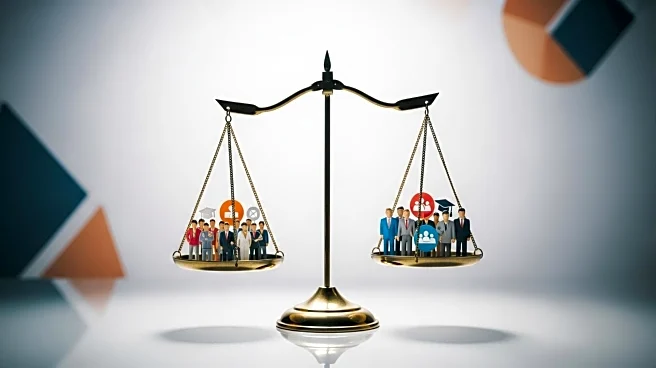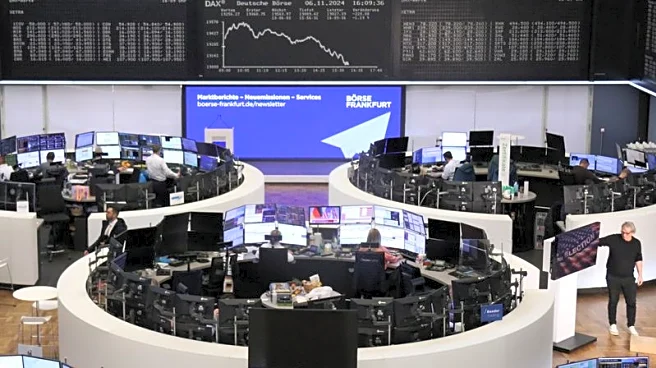What's Happening?
A report from DeVry University has identified a 'silent standoff' between workers and employers regarding skills development, which could exacerbate existing skill gaps. The report reveals a disparity between workers' confidence in their skills and employers' concerns about future workforce readiness. While 85% of workers surveyed believe their skills will keep them employable over the next five years, 69% of employers express worry about their workforce's preparedness for future changes. This disconnect has led to worker disengagement and employer anxiety, with both parties feeling equipped for the present but uncertain about the future. The report emphasizes the importance of bridging this gap through upskilling and reskilling initiatives. Despite 90% of employers claiming to offer upskilling benefits, workers report declining access and question the adequacy of these efforts. Soft skills such as critical thinking, communication, and adaptability remain crucial, with 60% of employers acknowledging their increased importance over the past five years.
Why It's Important?
The skills standoff highlighted by DeVry University has significant implications for the U.S. workforce and economy. As industries evolve rapidly, the ability to adapt through skill development is crucial for maintaining competitiveness. The disconnect between workers and employers could lead to a workforce ill-prepared for future challenges, impacting productivity and innovation. Employers may face difficulties in filling roles with adequately skilled candidates, potentially slowing economic growth. Conversely, workers may experience job insecurity and limited career advancement opportunities if they lack the necessary skills. Addressing this issue through targeted upskilling and reskilling programs could enhance workforce resilience, ensuring both workers and employers are better equipped to navigate economic changes.
What's Next?
To address the skills standoff, stakeholders may need to develop comprehensive strategies for workforce development. Employers could enhance transparency and accessibility of upskilling programs, ensuring workers are aware of and can benefit from these initiatives. Collaboration between educational institutions, businesses, and government agencies might be necessary to create effective training programs that align with industry needs. Additionally, fostering a culture of continuous learning and adaptability could help bridge the skills gap, preparing workers for future challenges. Monitoring the effectiveness of these efforts and adjusting strategies as needed will be crucial in achieving long-term workforce readiness.
Beyond the Headlines
The skills standoff raises broader questions about the role of employers in workforce development and the responsibility of workers to pursue skill enhancement. Ethical considerations may arise regarding the fairness of access to upskilling opportunities and the potential for socioeconomic disparities in skill acquisition. The evolving nature of work, driven by technological advancements, underscores the need for a proactive approach to skill development. Long-term shifts in employment patterns and job requirements could necessitate a reevaluation of traditional education and training models, emphasizing lifelong learning and adaptability.











